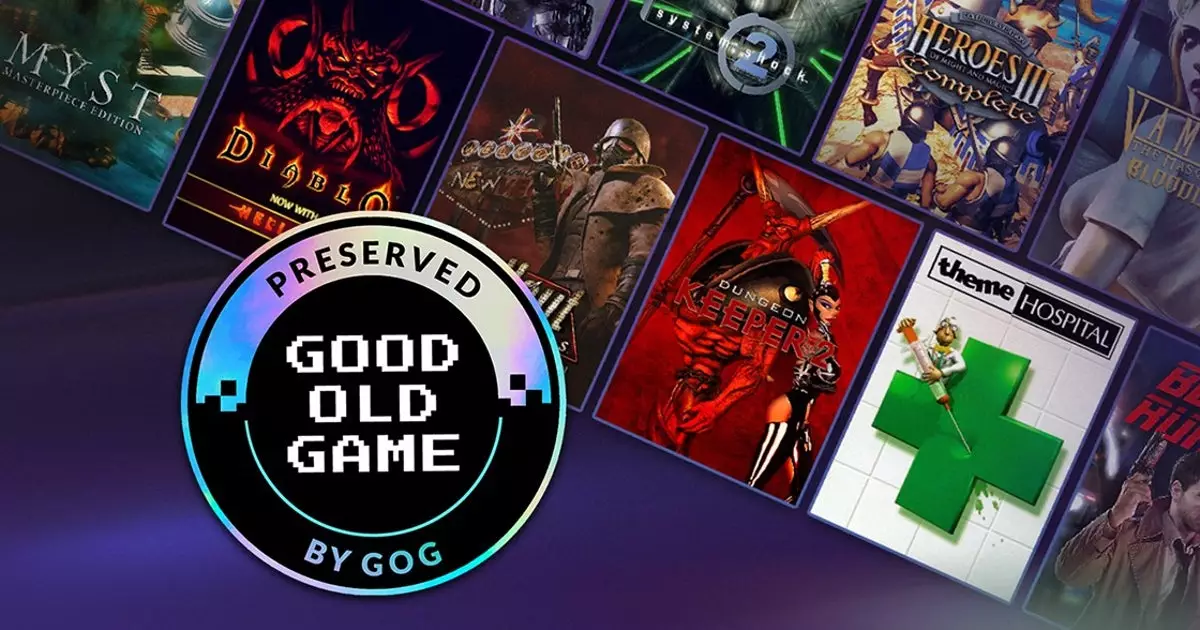In recent years, the landscape of digital game distribution has undergone a notable transformation. GOG, known for its staunch support of classic video game titles and its dedication to preserving gaming history, has shifted its focus from merely being a repository for vintage games to becoming a platform that embraces modern titles. While this pivot may have alienated some purists who cherished GOG’s commitment to classic gaming, the reality remains that the digital marketplace is evolving, and GOG is adapting accordingly. This transition bears the hallmarks of a retailer responding to consumer demand while also striving to uphold the concept of game preservation.
At its core, GOG has become a sort of DRM-free alternative to Steam—a platform known for its broader array of contemporary games. However, this evolution comes with a crucial twist: GOG is also embarking on a renewed effort to ensure that older titles continue to thrive in contemporary gaming environments. This endeavor is encapsulated by the newly established GOG Preservation Program, which signals the retailer’s intent to strike a balance between nostalgia and modernity.
The GOG Preservation Program reflects an ongoing commitment to game restoration that the platform has been cultivating for years. With a specific focus on making classic titles compatible with the hardware of today, GOG’s initiative aims to bridge the gap between retro gaming lovers and the contemporary gaming community. By introducing a badge system to identify games that have received such treatment, GOG provides consumers an easy way to recognize which titles are primed for modern play.
The restoration process itself is not trivial. GOG’s in-house team diligently works to mitigate bugs and add essential updates like modern video codecs and compatibility with the latest operating systems. By doing so, they are addressing one of the critical pain points for players: outdated titles often posed challenges when attempting to run them on newer devices. Furthermore, the “Good Old Game” badge signals assurance to players—this title has been given the necessary love and attention to be a truly playable experience without the need for myriad unofficial patches or mods.
In an impressive first wave, GOG has introduced over 100 titles back into circulation under this new program, ranging from beloved classics such as “Resident Evil” and “Diablo” to cult favorites like “Vampire: The Masquerade – Bloodlines.” This extensive catalog showcases the breadth of GOG’s commitment to its preservation ethos while also striking a chord with those who fondly remember the golden era of gaming.
Despite GOG’s ambitions, the preservation program is not without its hurdles. Engaging with original developers and publishers for permissions to modify and restore older titles is fraught with complexities. The gaming industry’s historical intricacies mean that not all titles are created equal regarding rights and accessibility, making the restoration process a significant challenge. Nevertheless, GOG’s commitment to such an initiative is commendable, illustrating a proactive approach to creating a sustainable ecosystem for classic titles in an increasingly competitive market.
Moreover, while GOG has made strides in revamping older titles, it is vital to acknowledge the broader implications for game preservation as a concept. Yes, GOG aims to profit from these ventures, but the underlying intention of safeguarding gaming history remains significant. As corporations grapple with the balance between profit margins and nostalgia, GOG places itself in an enviable position within the market—one that fosters appreciation for both classic and contemporary gaming experiences.
As digital gaming continues to flourish, the importance of preservation initiatives cannot be overstated. With GOG’s newly formed focus, the potential exists to strengthen the relationship between game developers and the gaming community regarding legacy titles. By championing classic games with modern functionality and user-friendliness, GOG ensures that these works of art remain accessible to new generations.
In an age when server shutdowns can render beloved titles unplayable, GOG’s endeavor to prioritize out-of-the-box playability is timely and necessary. It suggests a future where gaming history is not just cherished but actively celebrated. As GOG moves forward with its Preservation Program, it is essential to monitor how effectively it can navigate the challenges inherent in this essential task, ensuring that the spirit of retro gaming remains alive and well for years to come.

